People get a home loan, or mortgage, to buy a house. The bank lends money, with the house as collateral, which is to be paid back over time with interest. This is considered an "asset" to the bank.
Mortgage assets can be sold to other banks and to investment banks. Groups of mortgage assets can be turned into securities called Mortgage Backed Securities, or MBS. Groups of MBS can be turned into Collateralized Mortgage Obligations, or CMO. CMOs are put into risk categories and put into Tranches. Something called Credit Default Swaps can be bought, which are like insurance on credit backed assets in case they fail. These derivatives and financial instruments are bought and sold.
Community groups and "progressive" political forces lowered underwriting standards for lending.
In the 1980s, groups such as the activists at ACORN began pushing charges of "redlining" - claims that banks discriminated against minorities in mortgage lending. In 1989, sympathetic members of Congress got the Home Mortgage Disclosure Act amended to force banks to collect racial data on mortgage applicants.
Minority mortgage applications were rejected more frequently than other applications - not because of discrimination but simply because minorities tend to have weaker finances.
A "landmark" 1992 study from the Boston Fed concluded that mortgage-lending discrimination was systemic. The study was tremendously flawed. The president of the Boston Fed said that no new studies were needed, with the US comptroller of the currency seconding the motion.
The Boston Fed, clearly speaking for the entire Fed, produced a manual for mortgage lenders stating that: "discrimination may be observed when a lender's underwriting policies contain arbitrary or outdated criteria that effectively disqualify many urban or lower-income minority applicants."
The Boston Fed ruled that participation in a credit-counseling program should be taken as evidence of an applicant's ability to manage debt. Bank regulators, not banks, required the loosening of underwriting standards.
In 1977 Jimmy Carter passed the Community Reinvestment Act, or CRA. CRA loans are risky loans. Banks were compelled to make loans they normally wouldn't, violating free market principles. The leftist organization ACORN began harrassing banks, threatening lawsuits under CRA and even harrasing bankers at their homes to make them issue more and more bad loans, sub-prime mortgages. (This is the same ACORN that Barack Obama worked with, which had voter registration fraud charges nationwide.)
A 1995 strengthening of the Community Reinvestment Act required banks to find ways to provide mortgages to their poorer communities. It also let community activists intervene at yearly bank reviews.
Banks that got poor reviews were punished; some saw their merger plans frustrated; others faced direct legal challenges by the Justice Department.
Fannie May and Freddie Mac are Government Sponsored Enterprises which buy mortages. They were directed to buy more and more sub-prime mortgages, under the arguably noble idea of helping minorities and poor people get into houses. Freddie Mac and Fannie May buying up sub-prime mortgages increased the demand for them.
Fannie and Freddie being Government Sponsored Enterprises gave the impression that the mortgages they bought were safe. This, and the political pressure to make bad loans caused the financial markets to be flooded with bad mortgages.
Bank Of America
The mortgage lending free-for-all fueled the housing bubble.
A housing boom caused housing prices to increase. This was a housing bubble. Then the bubble popped and house prices went down. Some people had taken mortgages thinking that if they couldn't afford to pay it, they would just sell the house and pay off the mortgage, keeping the profit. But house values went down. In many cases the value of the house was less than the mortgage, so why pay it? And of course many people had taken mortgages they couldn't afford.
Fannie May paid big contributions to politicians who should have regulated them: the biggest recipient was Democrat Chris Dodd, who received contributions totaling $165,000
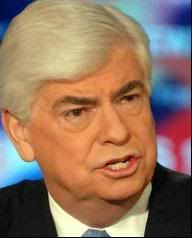
In 2005, Senator Christopher Dodd, and all the Democrats on the Banking Committee blocked legislation to regulate Fannie and Freddie.
Senate Republicans introduced a bill in 2006 to regulate, but Democrats voted against.
The second biggest recipient of contributions from Fannie was Barack Obama, who received $126,000.
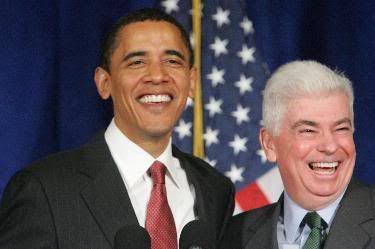
Republicans have also received contributions, Robert Bennett received $108,000 and John McCain received $21,550.
In 2006, John McCain co-sponsored a bill to address the problem and gave a warning. In a party line vote all the democrats voted against the bill.
In 2004, Democrat Franklin Raines steps down as CEO of Fannie May for bad accounting practices. Franklin Raines was appointed by Bill Clinton. Fannie May had been cooking the books. Raines walked away with $90 million after 6 years.


While Barney Frank was on the House Banking Committee, which had jurisdiction over Fannie, he had a gay relationship with Herb Moses. Moses worked as Fannie’s assistant director for product initiatives, and was at the forefront of relaxing lending restrictions. They broke up in 1998, a few months after Moses ended his seven-year tenure at Fannie Mae.
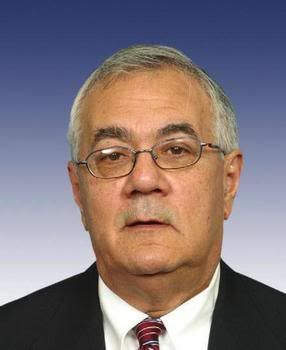
A Fannie Mae Foundation report singled out a model of lending that worked with community activists and followed "the most flexible underwriting criteria permitted." That lender's $1 billion commitment to low-income loans in 1992 had grown to $80 billion by 1999 and $600 billion by early 2003. The lender was Countrywide.

Senators Christopher Dodd, Democrat from Connecticut and chairman of the Banking Committee, and Kent Conrad, Democrat from North Dakota, chairman of the Budget Committee and a member of the Finance Committee, received loans from Countrywide Financial through a little-known program that waived points, lender fees, and company borrowing rules for prominent people.

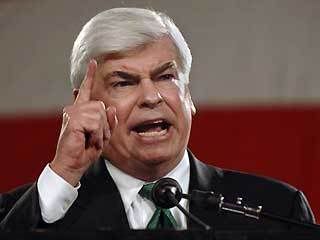
Fannie Mae's former CEO, James Johnson, who had been advising presidential candidate Barack Obama on the selection of a running mate, resigned from the Obama campaign after the Wall Street Journal reported that he received Countrywide loans at below-market rates.
Mr. Johnson led Fannie Mae from 1991 to 1998. He and Countrywide's Mr. Mozilo worked together to streamline the underwriting process.
Another former CEO, Franklin Raines, received low-rate home loans from Countrywide, a large originator of higher-risk subprimes mortgages and a major seller of home loans to Fannie Mae.
Mr. Raines, who succeeded Mr. Johnson at Fannie's helm at the end of 1998, became a repeat customer of Countrywide while he was CEO.
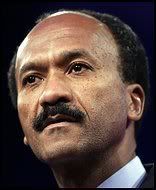
The mortgage crisis is a direct result of an intentional loosening of underwriting standards - done in the name of ending discrimination, despite warnings that it could lead to wide-scale defaults.
- Financial services were not deregulated during the Bush Administration.
- In 1994, state and federal action eliminated rules banning banks from operating in more than one state.
- President Bill Clinton signed the 1999 Gramm-Leach-Bliley Act into law, which could be considered a deregulation bill. In 2000, Congress also passed legislation that, among other things, clarified that certain kinds of financial instruments were not regulated by the Commodity Futures Trading Commission (CFTC). Among these were "credit default swaps," which have played a role in this year's meltdown.
- In the nine years since that legislation--including the eight years of the Bush presidency--Congress has enacted no further legislation easing burdens on financial services industry.
No comments:
Post a Comment